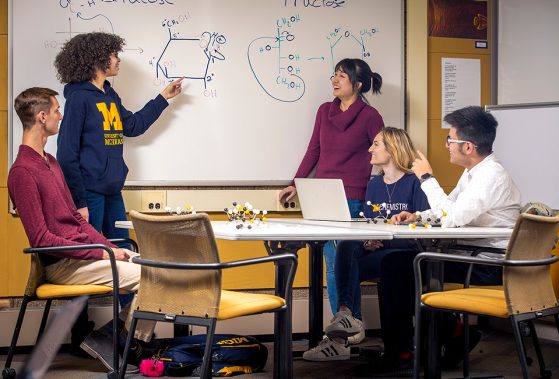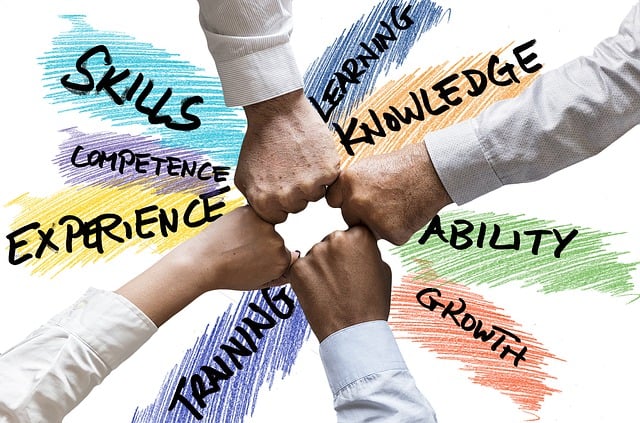
Welcome to our comprehensive guide on building a collaborative learning space.
In today's fast-paced and interconnected world, fostering collaboration among learners is essential for their success. This article will provide practical insights and strategies to establish cooperative groups, define group goals, facilitate group dynamics, encourage cooperative tasks, and promote shared decision-making.
Whether you are an educator, a facilitator, or a learner yourself, this guide will equip you with the knowledge and tools to create a dynamic and engaging learning environment that promotes freedom and growth.
Establishing Cooperative Groups
To ensure effective collaboration, it is essential to establish well-defined and diverse cooperative groups within a collaborative learning space. Group formation plays a crucial role in fostering collaboration among learners.
When forming groups, it is important to consider various factors such as individual strengths, skills, and interests. By creating diverse groups, learners can benefit from different perspectives and experiences, leading to a richer learning environment.
Additionally, well-defined groups with clear roles and responsibilities help ensure that everyone contributes and stays engaged in the collaborative process.
When forming groups, it is also important to promote a sense of trust and respect among members, creating a safe and supportive environment for collaboration.

Defining Group Goals
The establishment of well-defined group goals is crucial for fostering effective collaboration within a collaborative learning space. By establishing clear objectives, students can work together towards a common purpose, leading to enhanced learning outcomes.
When setting group goals, it is important to ensure they are specific, measurable, achievable, relevant, and time-bound (SMART). This allows for clear direction and progress tracking.
Additionally, group goals should align with the overall learning objectives of the course or project. Clear goals provide a framework for students to understand their roles and responsibilities within the group, promoting accountability and effective communication.
Regularly revisiting and revising group goals based on feedback and progress ensures that the group remains focused and motivated.
Ultimately, defining group goals lays the foundation for a collaborative learning experience that fosters effective communication and encourages freedom in learning.
Facilitating Group Dynamics
When facilitating group dynamics in a collaborative learning space, it is essential to nurture effective communication and foster a sense of unity among students. Group dynamics refer to the interactions and relationships that occur within a group.
To create a positive and productive learning environment, educators can employ various communication strategies. First, establishing clear expectations and guidelines for communication helps students understand how to effectively express their ideas and listen to others. Encouraging active listening and respectful dialogue also promotes effective group dynamics.

Additionally, incorporating collaborative activities and projects that require students to work together can strengthen their communication skills and foster a sense of unity.
Encouraging Cooperative Tasks
In cultivating a collaborative learning space, educators can foster effective group dynamics by encouraging students to engage in cooperative tasks. Group activities provide opportunities for students to work together, share ideas, and develop important teamwork strategies. Educators can design tasks that require students to collaborate, such as group projects, problem-solving activities, and discussions. These tasks promote active engagement, critical thinking, and communication skills.
To encourage cooperation, educators can establish clear roles and responsibilities within groups, promote open and respectful communication, and provide guidance and support when needed. It is important to create a supportive and inclusive environment where students feel comfortable contributing their thoughts and ideas.
To promote shared decision making, educators can facilitate a collaborative learning space by involving students in the process of decision making and creating a sense of ownership over their learning. By giving students a voice in the shared decision making process, educators empower them to contribute their ideas, perspectives, and opinions. This fosters inclusivity and creates a sense of belonging within the learning community.
Educators can achieve this by establishing regular opportunities for students to engage in group discussions, brainstorming sessions, and problem-solving activities. Additionally, providing students with choices and autonomy in their learning allows them to take ownership of their education and feel more invested in their academic journey.
Frequently Asked Questions
What Are Some Strategies for Dealing With Conflicts That May Arise Within Cooperative Groups?
Conflict resolution is essential for maintaining effective team dynamics within cooperative groups. Strategies such as active listening, clear communication, and compromising can help resolve conflicts and foster a collaborative learning space.
How Can Educators Effectively Assess Individual Student Contributions Within a Collaborative Learning Space?
Assessing individual student contributions within a collaborative learning space is crucial for educators. By implementing various strategies, such as peer assessments, self-reflections, and rubrics, educators can effectively evaluate students' contributions while promoting conflict resolution and fostering a collaborative learning environment.

Collaborative software and online platforms offer a variety of resources and tools to enhance collaboration and communication within cooperative groups. These tools provide real-time collaboration, file sharing, communication channels, and project management features.
What Are Some Ways to Ensure Equal Participation and Engagement From All Group Members?
Promoting inclusivity and facilitating active participation are key factors to ensure equal engagement from all group members. Strategies such as setting clear expectations, providing opportunities for individual contribution, and fostering a supportive and respectful environment can help achieve this goal.
How Can Educators Support Students in Developing Effective Communication and Teamwork Skills Within Cooperative Groups?
Educators can support students in developing effective communication and teamwork skills within cooperative groups by emphasizing the importance of developing active listening skills and fostering a positive group dynamic.
 Family Craft ProjectsHome ImprovementCooking and BakingReuse and RecycleDIY GiftsEco-Friendly ProjectsDIY Home SolutionsSeasonal ActivitiesFun and GamesLearn TogetherPrivacy PolicyTerms And Conditions
Family Craft ProjectsHome ImprovementCooking and BakingReuse and RecycleDIY GiftsEco-Friendly ProjectsDIY Home SolutionsSeasonal ActivitiesFun and GamesLearn TogetherPrivacy PolicyTerms And Conditions
